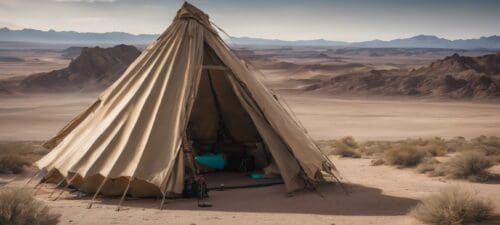Eco: Global Survival: Balancing Ecosystems and Civilization

Updated On: November 22, 2025 by 
Are you on the hunt for a game that offers more than mere amusement, but also imparts valuable lessons about our precious environment? It’s an all-too-common quest to find that perfect mix of fun and learning – yet we’ve stumbled upon Eco: Global Survival, a true diamond in the rough.
Allow us to guide you through the captivating nuances of this innovative game, which invites players to strike a delicate balance between advancing civilisation and nurturing thriving ecosystems.
Prepare to delve into an enchanting virtual world where each decision you make could leave a lasting imprint on nature!
What is Eco?
Eco is a unique global survival game that combines elements of ecosystem management and collaborative civilisation building. It provides a realistic simulation of the environment and challenges players to balance progress with the preservation of natural resources.
Description of the game
In Eco, we dive into an immersive online multiplayer world where our very survival depends on how wisely we use the environment around us. We build civilisations, create laws, and interact with a fully simulated ecosystem brimming with thousands of plants and animals going about their lives.
It’s up to us to strike that critical balance between societal advancement and environmental sustainability.
We face global survival challenges head-on, making strategic decisions that affect both our community in-game and the broader virtual world’s ecology. The stakes are high—our actions can lead to either a thriving ecological civilisation or disastrous consequences for the delicate networks of life surrounding us.
Next, let’s explore what sets this game apart: its unique genre of “Global Survival”.
Unique genre of “Global Survival”
Eco is a groundbreaking game that falls into the unique genre of “Global Survival.” It breaks away from traditional gaming by focusing on the players’ ability to work together in order to prevent ecological disasters and maintain a sustainable ecosystem.
Unlike many other games, Eco encourages collaborative civilisation building and decision-making, where players must consider the long-term impacts their actions have on the environment within the virtual world.
The game offers an unparalleled experience that not only entertains but also educates about environmental balance and preservation.
The Concept of Balancing Ecosystems and Civilisation
In Eco, players experience the realistic simulation of ecosystems and must collaborate to make decisions that have lasting consequences on the environment. The game challenges players to balance progress and development with preserving the delicate ecosystem.
Realistic simulation of ecosystem
Eco provides a highly realistic simulation of an ecosystem, featuring thousands of plants and animals with their unique life cycles. As players harvest resources and develop their civilisation, they must consider the impact on the delicate balance of the ecosystem.
The game vividly illustrates how human actions can influence the environment, emphasising the interconnectedness between civilisation and ecological preservation.
The intricate web of life in Eco’s simulated ecosystem serves as a compelling reminder of the significance of maintaining ecological balance. Players are encouraged to understand how their choices affect not only their own survival but also that of all living creatures within the virtual world.
By offering this immersive experience, Eco effectively communicates the vital importance of balancing civilisation with environmental preservation.
Collaborative gameplay
Players engage in collaborative gameplay to confront the challenges of Eco’s global survival. Together, they make impactful decisions, create laws, and manage resources for sustainable development.
The game fosters group decision-making as players strive to strike a balance between human progress and ecological preservation. By working together, individuals gain an understanding of the intricate web of life within the fully simulated ecosystem while enjoying a unique gaming experience.
The interactive element of Eco encourages players to consider their actions’ impact on the environment and future sustainability. Through collaboration and shared goals, gamers are immersed in thoughtful ecological balance management within civilisation building.
This leads to an engaging gameplay experience that highlights how a carefully balanced ecosystem is essential for both virtual and real-world civilisations.
Consequences of human actions on the environment
Understanding the impact of human actions on the virtual ecosystem is crucial in Eco. Players’ decisions, such as deforestation or overhunting, directly influence the game’s ecological balance and wildlife populations.
As players extract natural resources to build their civilisation, they must carefully consider their environmental footprint and ensure sustainable resource management to prevent irreversible damage to the ecosystem.
Collaborative decision-making within the game determines how human actions affect the environment. The choices made by individuals and societies can lead to either preservation or degradation of ecosystems.
Latest Updates and Features
The game has recently introduced new vehicles, player housing, improved controls, economic systems, and skills and performance enhancements. These updates have enhanced the gaming experience and added more depth to the simulation of balancing ecosystems and civilisation.
Introduction of new vehicles
Eco has recently unveiled an exciting update introducing new vehicles to the game. These vehicles expand players’ mobility options, enabling them to travel and explore the diverse ecosystem more efficiently.
With these new additions, players can now navigate through the intricate web of life within Eco’s simulated world while experiencing enhanced gameplay dynamics. The introduction of new vehicles enriches the gaming experience and further emphasises the interconnectedness between civilisation and the environment.
Moving forward in our exploration of Eco’s latest developments, let’s delve into how player housing has been integrated into this dynamic global survival game.
Player housing
Player housing in Eco is more than just a place to call home; it’s an essential part of developing your civilisation. By crafting and constructing houses, players can provide shelter for themselves and their fellow gamers while also contributing to the growth of their virtual society.
With player housing, individuals can personalise their space while working together with others to build a thriving community.
Players have the opportunity to design and create unique structures that not only serve as homes but also play a crucial role in planning and managing resources for the betterment of the ecosystem within the game.
Improved controls
With the latest updates, Eco introduces improved controls that enhance the overall gaming experience. The streamlined controls make it easier for players to navigate through the game world and interact with the environment, promoting a more immersive gameplay.
These enhancements aim to provide a more intuitive and responsive interface for both novice and seasoned gamers, enabling them to focus on environmental preservation and collaborative decision-making without struggling with cumbersome controls.
The improved controls also contribute to smoother interactions within the simulated ecosystem, allowing players to better manage natural resources and participate in group decision-making effectively.
Economic systems
Eco provides a realistic economic system, allowing players to engage in trade and manage resources for the betterment of their civilisation. In-game currency reflects the value of natural resources, ensuring that the impact on the environment directly affects economic growth.
Players can create laws governing resource management and trade, emphasising sustainable practices within their virtual society.
The game’s economic systems are designed to mirror real-world challenges, offering an opportunity for players to understand the delicate balance between economic development and ecosystem preservation.
This aspect adds depth to Eco’s gameplay by highlighting the interconnectedness of human civilisation with natural resources. Emphasising collaboration and thoughtful decision-making, Eco encourages players to consider environmental impacts before making decisions that could affect both their virtual world and our real planet.
Skills and performance
Transitioning from understanding economic systems to mastering skills and performance in Eco, players engage in meaningful collaboration while building their characters. As players progress through the game, they have the opportunity to develop a wide range of skills that are vital for survival and success within the virtual world.
From mastering important trade skills such as farming, hunting or crafting, to honing unique abilities that contribute to maintaining a sustainable ecosystem, a player’s performance directly impacts not only their own experience but also the collective well-being of civilisation within the game.
Within Eco, skill development is crucial for both individual and group accomplishments. Players can enhance their abilities by engaging in activities aligned with ecological preservation like wildlife conservation or plant cultivation.
Ways to Save the Environment in the Game
Players can make choices and take actions that benefit the virtual ecosystem, collaborate with other players to manage natural resources, and balance progress with environmental impact.
These strategies mirror the real-world challenges of ecological sustainability and provide valuable insights for global survival.
Choices and actions that benefit the ecosystem
Players can make choices and take actions that have a positive impact on the ecosystem. By responsibly managing resources, such as planting trees, regulating hunting, and fishing sustainably, players can help maintain the balance of the in-game environment.
Additionally, players can implement eco-friendly technologies and renewable energy sources to reduce their civilisation’s carbon footprint.
Collaborating with other players to create laws that protect the environment is crucial. By passing regulations against pollution and deforestation or implementing wildlife conservation measures, players can collectively work towards preserving the virtual ecosystem.
Collaborating with other players
Players collaborate with each other to make decisions that impact the ecosystem and civilisation in Eco. In-game laws, regulations, and resource management require group decision-making to ensure sustainability.
Together, players can strategise on ways to minimise their ecological footprint and protect the environment while advancing their civilisation.
Collaborative gameplay in Eco emphasises the interconnectedness of ecosystems and societies. By working together, players can effectively manage natural resources, create sustainable laws, and maintain a healthy balance between progress and environmental preservation.
Balancing progress and environmental impact
Understanding the delicate balance between progress and environmental impact is crucial in Eco. Our decisions directly affect the game’s ecosystem and, by extension, its survival. Every action – from resource extraction to infrastructure development – can have far-reaching consequences.
Collaborative decision-making provides a platform for us to explore the intricate web of life and see the long-term effects of our choices on the environment.
We must consider that our civilisation’s growth should not come at the cost of ecological imbalance. Each step forward needs to be carefully balanced with measures that protect and sustain our surroundings.
Conclusion: The Importance of Balancing Ecosystems and Civilisation in the Virtual and Real World
Balancing ecosystems is crucial for human survival and sustaining the planet. Understanding how our actions impact the environment leads to informed decisions. We must work together to find solutions that benefit both civilisation and the natural world.
By acknowledging our responsibility, we can create a positive impact on our virtual and real environments. Maintaining this balance in Eco will inspire mindful actions beyond the game.
FAQs
1. What is “Eco: Global Survival”?
“Eco: Global Survival” is an ecological simulation game where players make group decisions to balance the ecosystems while building a civilisation.
2. How does human impact affect ecosystems in the game?
In “Eco”, every action players take can impact the ecosystem, showing how human activities relate to environmental changes.
3. Can you play “Eco: Global Survival” with others?
Yes, you can join friends and other players in making group decision-making important for society’s survival within the game.
4. Does this game help understand real-life ecosystems?
Playing “Eco” gives insight into ecological balance and teaches how our choices influence both civilisations and their surrounding ecosystems.









